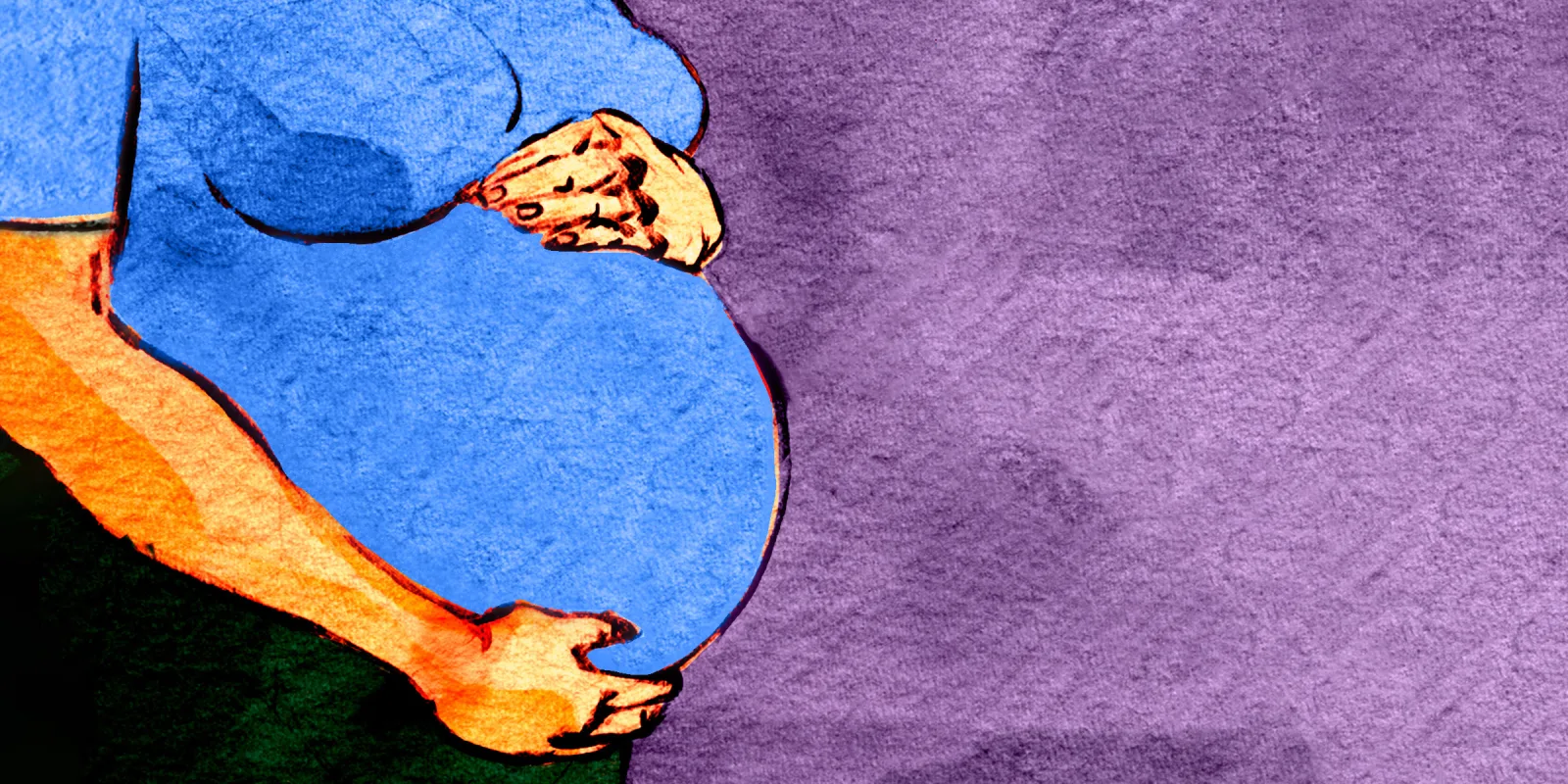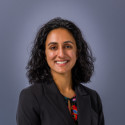I was eight months pregnant and nearly at the end of a 10-hour surgery removing a basketball-sized tumor from someone’s abdomen. I had taken two 10-minute breaks that whole day. At the end of the case, when getting ready to close the fascia, the attending switched his gloves. When I asked if I should do the same, he cooly responded, “Well, probably no need, since you’ve been in and out so much during this case.” I froze and felt a knot rise in my throat. Anger or sadness, I couldn’t tell. When we finally unscrubbed for the day, tumor out, he sighed and wiped his forehead.
“Man, I could sure use a drink!” he joked with me, as if in camaraderie. I could not even muster a smile in return, as I thought about how just minutes before he had made a backhanded comment about how I had been gone for so much of the case. Twenty minutes out of 11 hours. To nourish myself and the 8-month-old fetus inside me.
My end of the rotation feedback, delivered to me a week before I gave birth, was something to the effect of “You’re not as surgically adept as your peers.” Feedback which I had never gotten on any other rotation. And feedback which, I know, did not take into account at all the basketball I was lugging around with me as I tried to tough it out for operations that lasted all day long. It felt more than unfair. It felt inappropriate to receive such unhelpful and frankly insulting feedback. It felt like we could and should do a lot better for pregnant trainees.
There have been others before me who have been pregnant and operated, I reminded myself. I found out I was pregnant while on a community practice rotation; I had tried to keep it under wraps in the early weeks until my daily nausea/vomiting prompted me to need to excuse myself from a string of lap choles to take care of myself. The attending, a young man with little ones of his own, was very obliging to my requests to leave the OR intermittently as needed. Most of my pregnancy was filled with wonderful support in the form of attendings, both men and women, caring co-residents and supportive nurses and OR staff. People would remind me to take breaks, bring me juice, and smile and pat me on the back during long days. Of course, the days were long. Unhealthily long. But this has been done by women before me, I thought, as I suppressed my pain and discomfort and put on a smile. If others have done it, and under worse circumstances, who am I to complain?
It wasn’t until I was pregnant that I really started paying attention to how people would refer to pregnant surgeons and other physicians and their journeys being pregnant as a trainee or a full-fledged physician. Instead of describing healthy habits and ways to nourish oneself and the incredibly challenging but amazing physiological and mental changes that happen when a person is pregnant, I felt like the discussion would often turn to how “badass” someone was for doing an eight-hour surgery without eating, taking two nights of call in a row while seven months pregnant, and so on and so forth. “I don’t want to be a badass,” I thought to myself. “I just want to be healthy. And working this hard, this long, without proper sleep and nutrition does not feel healthy.” In fact, after a health scare, I worked hard with my residency administration to stop taking night calls after 30 weeks of pregnancy, and we worked together to have the policy change so this would be applicable to other pregnant residents in the future.
Many women physicians consider delaying pregnancy until after training precisely because they have little to no faith that the system will support them during pregnancy and the rigors expected during training. But delaying family planning also has its drawbacks. A recent post (and subsequent comments) about infertility in women in medicine brings to light the reality that there is no one fixed solution. It is uplifting to see women physicians supporting each other through difficult and often imperfect decisions and solutions as we try to reconcile the reality of our chosen profession with the reality of biology.
I’m also in a Facebook group for surgeon moms that is quite popular. The advice generally seems to be “advocate for yourself, ask for what you need.” But this is imperfect advice designed for and catering to an imperfect system. Just like Family and Medical Leave Act and other state-run initiatives to support health needs of workers (because yes, everyone gets sick – even doctors), we need to have structures in place that encourage rest, medical leave, etc, without the onus being on the pregnant surgeon to advocate for herself incessantly. To expect a pregnant resident to be able to advocate effectively for herself against the backdrop of an outdated, often male-dominated profession is naive and not a solution in itself. Female surgeons have higher incidences of infertility and also pregnancy related complications. But administrations and programs are slow to make top-down changes.
We as a field need to reevaluate the way we discuss pregnancy among physicians, especially trainees. This process is underway but there is still much to do, on many levels, and across many systems, especially in surgery. It no longer should be a badge of honor how long you operated while pregnant, how long you went without water, how long you spent up in the hospital responding to trauma pages. Yes, you are a resilient person. But no, that should not be a badge of honor. It should be a red flag for our system. It should be a badge of shame for our profession.
I am not proud of being called a badass pregnant surgeon. Because to me, badass just means that I put myself through ridiculous standards and risked my life and my baby’s life. I’d rather be a healthy pregnant surgeon, and I want that for my colleagues and posterity, too.
How would you improve medicine for pregnant physicians? Share your solutions in the comments.
Dr. Mohini (Mo) Dasari is a general surgeon in Kirkland, WA. She practices and teaches yoga, writes for pleasure, therapy and advocacy, and loves posting her amateur cooking and baking on Instagram @modalala. Her favorite thing to do is spend quality time with her husband, two-year-old daughter, and seven-pound dog. She tweets at @mdmdaware. Dr. Dasari is a 2023–2024 Doximity Op-Med Fellow.
Illustration by Jennifer Bogartz







